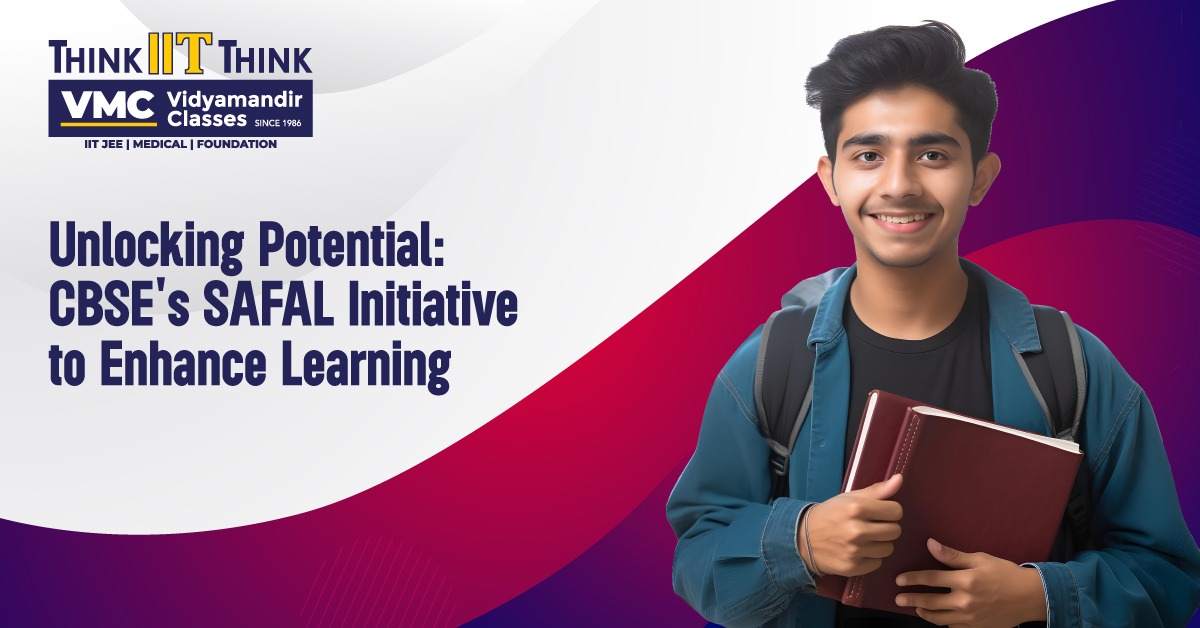Unlocking Potential: CBSE’s SAFAL Initiative to Enhance Learning
 Posted On
Posted On
286 total views, 1 views today
In a stride towards transforming education in India, the Central Board of Secondary Education (CBSE) has introduced SAFAL (Structured Assessment for Analyzing Learning), aligning with the directives of the National Education Policy (NEP) 2020. This initiative, launched initially in July 2021 for students in grades 5 and 8, aims not just to evaluate but to enhance competency-based learning among students.
Understanding SAFAL: A Competency-Based Approach
SAFAL is not your typical examination. It’s a diagnostic tool designed to delve deep into students’ grasp of competencies rather than their ability to memorize facts or perform under pressure. Unlike traditional exams, SAFAL doesn’t necessitate additional tutoring or cramming sessions. Instead, it underscores the importance of regular classroom teaching that focuses on nurturing competencies essential for holistic learning.
Key Objectives of SAFAL
The primary goal of SAFAL is to pinpoint areas where students may need additional support. By doing so, it enables educators to tailor their teaching methods to cater to these specific needs effectively. Importantly, SAFAL operates on a school-level basis, ensuring confidentiality of results within each institution. This approach fosters an environment where schools can utilize feedback constructively without concerns about external comparisons.
Implementation and Integrity
CBSE emphasizes the integrity of SAFAL assessments, emphasizing that it should be conducted meticulously according to established guidelines. Technical measures are in place to ensure the accuracy and reliability of data collected during the assessment process. This meticulous approach aims to provide credible insights into teaching and learning practices across affiliated schools.
Safeguarding Educational Quality
At its core, SAFAL is more than just an assessment tool; it’s a mechanism to strengthen educational practices. By focusing on competencies, it encourages a shift from rote learning to a more comprehensive understanding of subjects. This shift is crucial in preparing students not only for academic success but also for real-world challenges where critical thinking and problem-solving skills are paramount.
The Role of Schools and Educators
Schools play a pivotal role in the success of SAFAL. They are entrusted with ensuring that the assessment is conducted with sincerity and adherence to the prescribed protocols. This responsibility underscores the collaborative effort required from educators, administrators, and students alike to derive maximum benefit from SAFAL.
Looking Ahead: Impact and Future Prospects
As SAFAL progresses, its impact on educational outcomes is anticipated to be profound. By providing actionable insights into learning gaps and instructional strategies, it empowers schools to refine their educational approaches continuously. This iterative process not only enhances learning experiences but also contributes to the broader goals of educational reform outlined in NEP 2020.
Closing Thoughts
In summary, SAFAL represents a significant step forward in the evolution of educational assessment in India. By embracing competency-based evaluation and fostering a culture of continuous improvement, CBSE is paving the way for a more effective and inclusive educational system. As SAFAL expands its reach and influence, it promises to shape the future of learning by equipping students with the skills and knowledge needed to thrive in an increasingly complex world.




